Sommario
Objectives
The MaCoIMA Project aims to develop new materials both in the form of composite and hybrid for their use in high demanding sectors such as advanced mechanics and aeronautics. In addition to the development of AM processes for composites, the study will be addressed in both the post-process phase aimed at developing joining procedures between materials with different structure and properties. This phase will also require the assessment of how to integrate conventional production processes into AM production systems and composite systems for “coexistence” with ceramic or metallic materials.
The development potential of 3D printing is enormous and recognized by the scientific and industrial world but limited, between the various factors, from the reduced acquaintance of the properties of the materials that render uncertain the planning and the degree of reliability of the same ones in function of the potential applications. The proposal therefore aims to define processes for the analysis and characterization/validation of advanced innovative materials through the design and development of functional testing methodologies simulating the operating conditions in order to in turn, to support the design and validation processes of the materials being researched.
Further result of the project will be the availability of a modelling of advanced materials that, appropriately calibrated on the morphological characteristics of the materials developed and investigated, on their real mechanical properties, will be a useful tool for the dissemination and use of 3D printing materials and related technologies. The research will be specialized, in the last phase of prototyping, in the application of prototype materials to representative cases of classes of industrial components (e.g. automatic packaging machines) and/or related to advanced application areas such as structural parts for Aerospace (e.g. drone parts, robotic inspection systems, satellites).
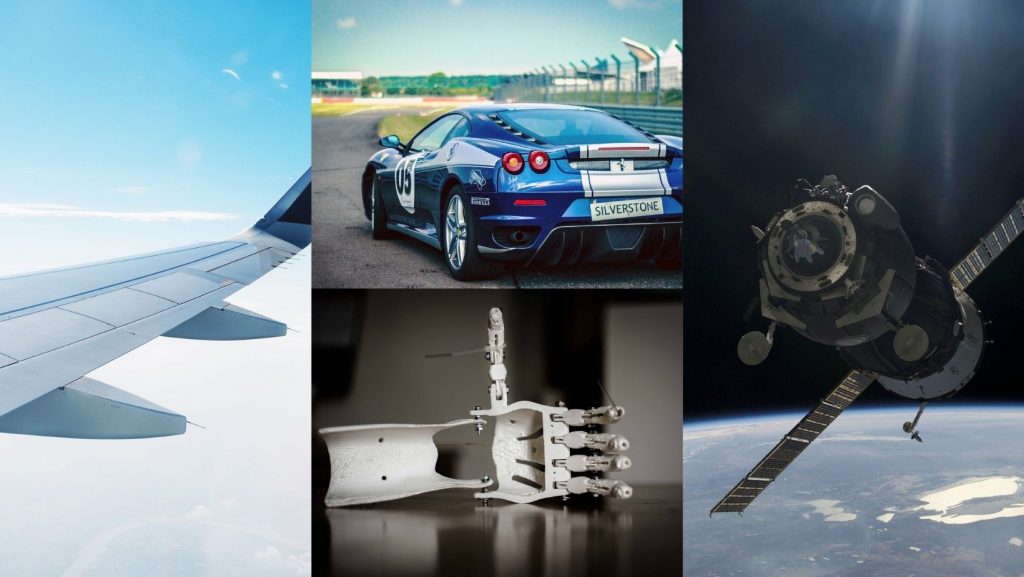
Project Summery
Additive Manufacturing or 3D Printing has introduced new production methodologies introducing innovative design, manufacturing and distribution models to end users. Technology offers great freedom in the design of complex components, highly custom made products and in minimizing waste. The Industry 4.0 revolution sees the integration of smart manufacturing systems with information technology systems. 3D printing is therefore a major player in the Industry 4.0 world thanks to the numerous benefits such as time/material saving and rapid prototyping, high efficiency and decentralization of production methods.
The current business market is pushing for an up-dating of manufacturing technologies in order to provide quick answers to the high demand for variability, efficient supply chain and optimization of energy consumption. The answer that Industry 4.0 can provide is the benefits derived from the integration of modern production technologies with information technology systems to improve production capacities. In this context, smart manufacturing brings an improvement in long-term competitiveness by optimising work, the energy and material to reach a high quality product and find answers to the variability required by market demand and supply times.
In this scenario, the company that becomes a smart factory, represents a new generation of “production system in the production system” as conceived for Industry 4.0 and Smart Manufacturing. The advantages and repercussions of additive technologies have made them attractive in production sectors such as mass production, prototyping, sustainable production, lead time and cost minimization.
They can therefore become a fundamental component of Industry 4.0 and Smart Manufacturing for their high capacity as a non-traditional approach to mass customization in Industry 4.0.
The benefits of sustainable technology can be summed up in the high efficiency of resource use, product life and the reconfiguration of the value chain.
However, the evolution of additive processes is still not sufficiently explored and is very focused on various types of research focused on individual production technologies not including components obtained from the manufacturing system.
The MaCoIMA Project aims to make a contribution both to research in the field of advanced materials and to the world of smart manufacturing aiming at the design of innovative advanced materials.
The technologies involved in the project are those of 3D printing for polymeric and composite materials, reinforced with both long and short fiber. They will be integrated with conventional manufacturing processes to lead to the design and development of hybrid metal/composite and/or ceramic/composite materials.
The research is structured in phases that will be useful to provide technological solutions in terms of product/process systems in an integrated approach of design of materials, determination of their chemical properties-physical and mechanical, prototyping both materials and material/process solutions that can be applied in high-demanding industrial environments such as advanced mechanics, aerospace, etc.
The research stages are therefore organised in:
- MATERIAL DESIGN
- PROCESS OPTIMIZATION
- TESTING AND ANALYSIS
- PROTOTYPING
The project is also part of an Agile Manufacturing (competitiveness and product innovation) context, addressing two main development lines:
– virtualization of the design phase,
– the development and industrialization of advanced and rapid production technologies,
The technical context allows to identify the enabling technologies that are applied in the project:
– Advanced production systems (design-phase virtualization systems, advanced and rapid production technologies)
– Advanced materials (production of high performance materials:
- or composites and polymers from additive manufacturing,
- or hybrid materials obtained from the above using process or process-based strategies
– Nanotechnologies (functionalization with structural adhesive graphene for improvement of interface properties)
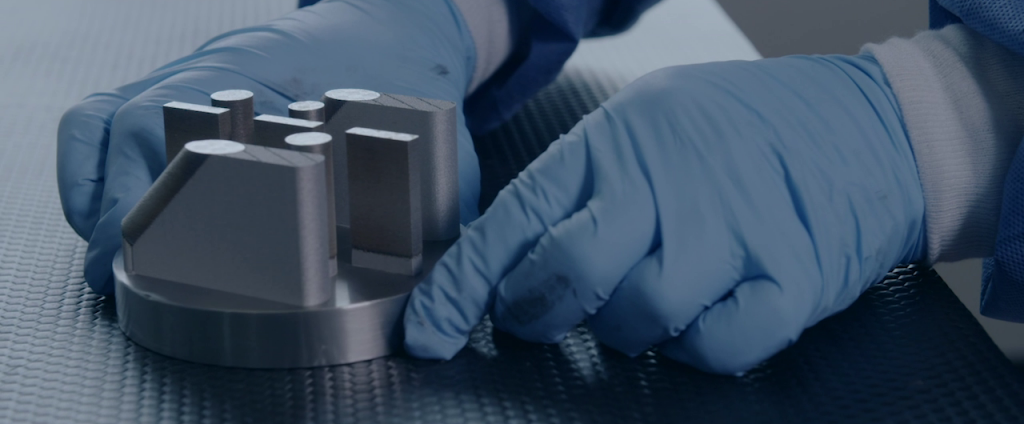
Innovation
The project will allow to structure a specific know-how in Industry 4.0 defining Material & Process Design criteria necessary for the development of innovative materials for applications where high performance is required.
Research will be characterised by a multidisciplinary approach which will define methodologies for the development of new hybrid composite and composite solutions through integrated research involving the use of materials expertise, Additive process and structural design, modeling.
Research aims to cover all stages of the innovation process:
- the integrated design of the material/process system oriented to industrial targets of high-performance materials. This phase also provides for the definition of a chain of design and development of the material integrated with CAD/CAE simulation and modelling methodologies;
- the manufacturing of both material and prototypes with industrial size plants (immediate fallout of the results). As a result of the planned optimization activity it will be possible to correlate the product defects with the process variables/ material/ product having innovative tools for the management of continuous and integrated improvement of the process/ product;
- marketing: the objective is the introduction of innovative materials on the market and the characterisation of their performance.
The project also involves the recombination of existing Surface Engineering skills through the introduction of new deposition technologies to confer enhanced functionality.
New technologies will therefore be introduced, not yet explored by the company and still little applied in the industrial field of reference of the project.
The innovation will be realized in the aspects of:
– INNOVATION (MATERIALS): creation of new high-tech and performance materials with the aim of developing a competitive advantage over competitors
– PROCESS INNOVATION: improvement and development of the production process, enabling new, reliable products to be obtained.
The proposing companies reserve the right to evaluate the patentability of the solutions developed, within the framework of the current regulations regarding intellectual property.
The role of Ecor International is transversal to all lines of research. The technical-scientific skills will be made available from the design phase of advanced materials to the optimization of smart manufacturing processes and their integration with conventional production also in the development of hybrid materials metal/ composite. The design will be extended to innovative solutions in which 3D printing technologies will be exploited, for example, for their potential in terms of design freedom, mechanical performance of materials and lightening.
The company will be moreover engaged in the phases of characterization and determination of the chemical-physical properties, mechanical new materials as well as the development of functional coatings for the protection and/or extension of the use of such materials in other fields of application.
Funding Scheme POR – FESR European Regional Development Fund 2014 – 2020 – ACTION 1.1.4 “Support for collaborative R&D activities for the development of new sustainable technologies, new products and services”.
Total amount of financing: €262.587,19
ECOR INTERNATIONAL financing amount: € 125.506,02
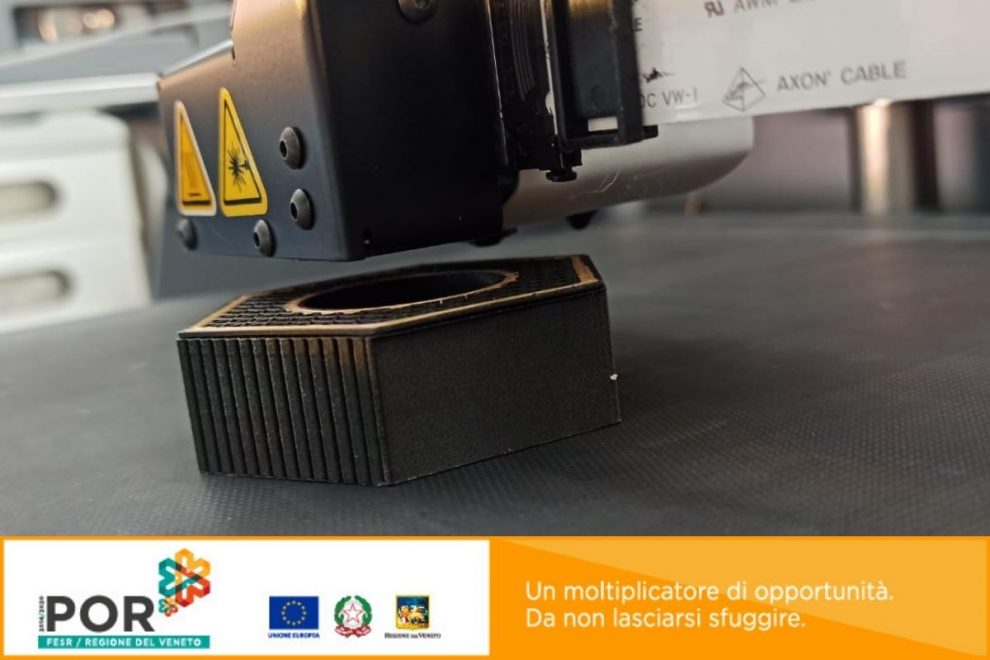
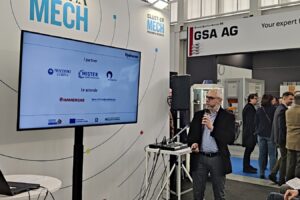
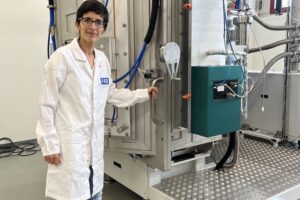






 @EcorIntern
@EcorIntern